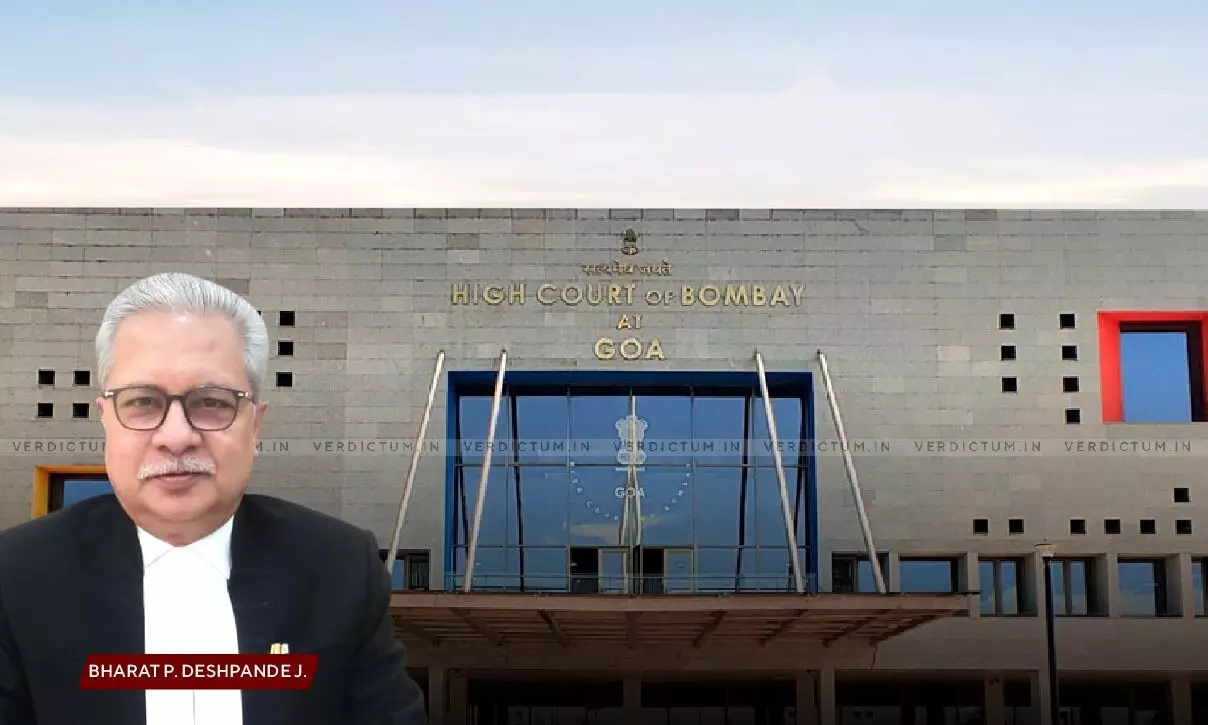
Presumption Would Arise That Case Set Out By Party Is Not Correct On Failure To Appear And Be Cross-Examined - Bombay HC Reiterates
 |
|The Goa Bench of Bombay High Court comprising Justice Bharat P Deshpande has reiterated that where the party to the suit does not appear in the witness box and states its own case on oath, does not offer himself to be cross examined by the other side, the presumption would arise that the case set out by such party is not correct.
In that context, the Court relied on the case of Vidyadhar, to say that, "In the case of Vidyadhar(supra) the Apex Court observed in paragraph 17 that where the party to the suit does not appear in the witness box and states its own case on oath, does not offer himself to be cross examined by the other side, the presumption would arise that the case set out by such party is not correct. Applying such proposition to the matter in hand, it is clear that the plaintiff must succeed in connection with alternate prayer instead of the prayer granted by the Trial Court."
Senior Counsel Sudin Usgaonkar along with Counsel Tanisha Mashelkar appeared for the appellant. None appeared for the respondents.
In this case, the appellant challenged a judgment from a Special Civil Suit in which the Trial Court partially granted an injunction to restrain the defendants from interfering with construction according to a 2006 Agreement. The Trial Court rejected the plaintiff's claims for compensation and damages, contending that the injunction had become ineffective due to the revocation of construction licenses and Power of Attorney.
The plaintiff argued that without these authorizations, damages and compensation were warranted. An application for additional documents was made to present a bank statement supporting this claim. The matter proceeded to final disposal as the respondents did not appear. The plaintiff also contended that the Trial Court's findings were arbitrary and sought the quashing of the judgment. The case surrounded the validity of the Agreement and the plaintiff's entitlement to damages and compensation.
The Court observed that the cheques were clearly reflected in the statement of account produced by the plaintiff, along with the application for the production of additional documents. In that context, it was further said that, "Though the statement of account of the plaintiff produced along with the application is in fact not necessary since the receipts issued by Margao Municipal Council and produced from the possession of the plaintiff would show that the plaintiff spent such an amount for and on behalf of defendant no. 1, the application for production of additional document in the interest of justice needs to be allowed. Accordingly, the statement of account showing the above two entries about payment made by the plaintiff to Margao Municipal Council are admitted. These entries needs to be considered along with the receipts produced by the plaintiff towards the proof of payment".
The Court also relief on Section 73 of the Indian Contract Act to hold that when a contract is broken the party who suffers by such breach is entitled to receive from the party who has broken the contract, a compensation for any loss or damage caused to him which naturally arose from the usual course of things from such breach.
Subsequently, the appeal was partly allowed, and the impugned judgment which disallowed the compensation/damages claimed by the plaintiff was quashed and set aside.
Cause Title: Shyam Pundalik Chodnekar vs Vishwas Saantosh Malvankar & Ors.
Click here to read/download the Judgment